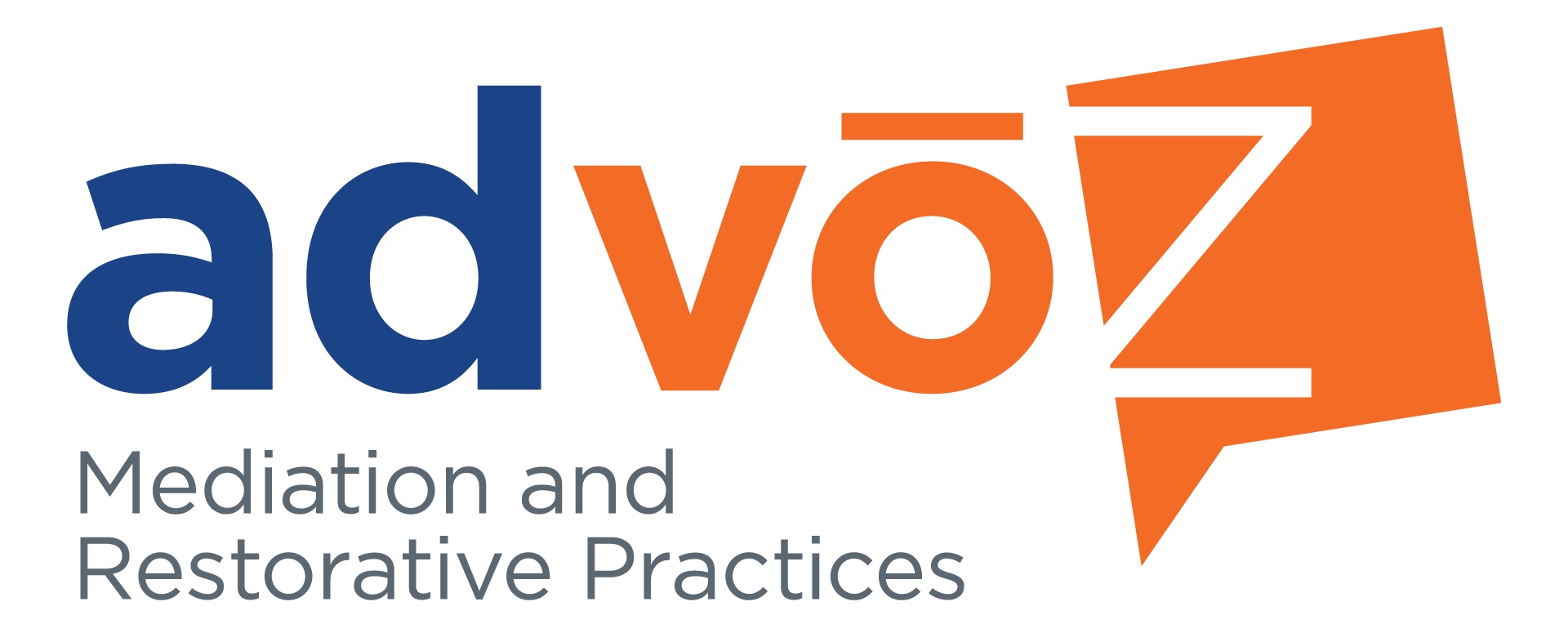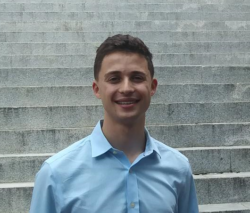As I write this blog, I am in my ninth week of interning with Advoz: Mediation & Restorative Practices. It has been a healing experience for me to work with Advoz staff and volunteers because they center relationships in all aspects of their work. I have witnessed and experienced the team affirming me, each other, and those they work with, being fully present with each other and those they work with, and accepting everyone they meet.
Advoz has challenges like any organization, meeting deadlines, promoting its mission to the community, finding clients, and carrying out the tasks of daily operations. However, staff and volunteers meet these challenges with integrity because they practice and embody the communication skills they teach in their training and practice the values Advoz holds. In my many years of being part of multiple workplaces, community, and faith organizations, I can say that during these weeks with Advoz I have felt my humanity, both my limitations and strengths, affirmed the most. Relationships are the core of restorative practices and I observe that Advoz “practices what it preaches”.
“…during these weeks with Advoz I have felt my humanity, both my limitations and strengths, affirmed the most.”
An integral part of doing restorative practices with integrity is staff and volunteers taking the time to reflect and process participant feedback from facilitated mediations, restorative conferences, and trainings. In a world where time is money, most organizations do not prioritize the practice of reflecting and processing. Restorative and transformative justice work is built on openness and trust which leads to healing. By reflecting on feedback and making needed adjustments, Advoz is modeling vulnerability and trust. I have been honored to be part of this process over the last two months and have learned so much, as people with varying amounts of experience share their thoughts and welcome my perspective.
“By reflecting on feedback and making needed adjustments, Advoz is modeling vulnerability and trust.”

Another foundational part of doing restorative practices well is having support from other practitioners and the general community. I have felt this deeply through opportunities to share my questions and concerns with Advoz staff and volunteers as I wrestle with what is rising up from my own story as I practice facilitating. I also appreciate friends and family who have asked questions about restorative justice and given me opportunities to share about Advoz’s work.
Restorative and transformative justice takes intentional steps to disrupt patterns that do not serve everyone. I’m glad for the opportunity to practice what I have been learning during my study of restorative justice with the Center for Justice and Peacebuilding, with Advoz, and with others in my community.








